Mission, Values and History
CGK's Educational Mission and Code of Conduct
Mission
Mission / Raison D'etre
A global learning community for
discovering and pursuing your happiness
After graduation, students will leave their families, and forge their own paths towards their future and their own unique happiness. These profound and irreplaceable paths are not supported by traditional education systems.
CGK International School nurtures lifelong learners with a rich global awareness.
We respect each child, fostering their ability to think, discover, and learn for themselves. We guide them to become lifelong learners who continue to grow even after entering the real world. We focus on whole person education to help them develop the traits to be successful and happy throughout life.
This is what we believe is the essence of education, and what we have always strived for.
We are committed to providing an educational environment where children can experience the vastness of the world, discover deeper learning beyond what can be measured, and cultivate their individuality.
We sincerely hope that our children will have a wide range of world-class options to choose from in the future, so that they can choose their own path, take on challenges, and continue to lead happy lives.
Value
Code of Conduct
Providing Quality Education to Global Kids by Nurturing Self-expression, Critical Thinking Skills and a Spirit of Inquiry
When interacting with other people, children need “critical thinking skills,” or the ability to think for themselves, before "self-expression," that is, learning to use language skills, either in English or Japanese. Language is the tool to finally communicate the opinions created this way, but without the interest and motivation that stems from a "spirit of inquiry," which precedes deep thinking, deep thinking will not happen.
Here at CGK, we value the strength and spirit of these three qualities. We understand that teachers themselves must be aware of the flow from "spirit of inquiry" to "critical thinking skills" and, finally, "self-expression." By reflecting this understanding in our daily teaching activities and using our curriculum as a foundation, we will cultivate truly global kids.
A willingness to think and challenge oneself by having a broad perspective and a deep interest in things, which makes one "want to know" and "want to learn" more actively. It is an important mindset to not wait for something to be given to you but to take action on your own and have the opportunity to grow.
The ability to think outside the box, to see and understand things from multiple perspectives, and to create one's own ideas. Critical thinking skills are important, not only in terms of cognitive skills such as problem-solving, but also in terms of non-cognitive skills, such as communication and emotional maturity.
This is not about superficial language skills, but about the ability to understand other people's ideas, to communicate one's own ideas, and to express oneself in order to interact with others. We nurture the desire and joy of interaction in our students, and help them develop the ability to act and speak with confidence.
History
- FY2016
-
April: Opening of "Bilingual Preschool Cosmo Global Kids Bashamichi, Yokohama"
Start with 3 children in the 2-year-old class.
July: Introduction of the "Contact Book" application
It became possible to send photos and videos, facilitating communication with parents about activities at the preschool.
September: Additional School Bus
A total of 2
January: Start of 2 optional classes (Preschool)
Dance and Pygmalion Class (A first for an international preschool in Japan)
- FY2017
-
April: 2 classes with a total of 28 students
(Age 2 and Age 3)June: Start of yearly Food Education Program
Activities such as "observing ingredients," "cooking lessons," "table manners," "harvesting experience," and "exclusive French restaurant experience" were incorporated throughout the year. Plans made for the next year to collaborate with farmers and an Italian restaurant.
July: Start of swimming lessons in a private pool
with guidance from instructors. Continuously held once a month since then (twice a month in summer) to educate on the basics of swimming.
- FY2018
-
April: 3 classes with a total of 58 students
(Age 2, Age 3 and Age 4)April: Start of P.E. classes with guidance from a P.E. instructor
Although this class is held in Japanese, during alternate weeks the same lessons are reviewed by an English Teacher, allowing children to learn the same skills in English. (From 2023, all P.E. classes are taught in English)
June: Start of programming class (optional in Preschool)
Programming lessons in English from an English teacher. This educational program is to develop logical thinking skills through programming, not to learn programming language.
August: Start of the English Library system
Started with 270 English books (with CDs), currently more than 1,500 books are available (as of April 2022, about 300 with CDs). By creating this opportunity to enjoy English at home, the English proficiency of students has improved.
- FY2019
-
April: 3 classes with a total of 69 students
(Age 3, Age 4 and Age 5)March: First preschool graduates
- FY2020
-
April: 4 classes with a total of 82 students
(Age 3, Age 4, Age 5, Afterschool for elementary)April: Change of school name
Bilingual Preschool Cosmo Global Kids Bashamichi, Yokohama → Cosmo Global Kids International School
April: Opening of Afterschool for elementary students
Cosmo Global Kids International School - Afterschool
Through authentic, high-level inquiry activities, CGK provides an environment that stimulates critical thinking skills and a spirit of inquiry, while providing a lively and enjoyable way of learning.
8F, 252 Yamashitacho, Naka-ku, Yokohama, Kanagawa (Greater Tokyo / near Kannai Station and Nihon-ōdōri Station) - FY2021
-
April: 4 classes with a total of 95 students
(Age 3, Age 4, Age 5, Afterschool for elementary) - FY2022
-
April: 5 classes with a total of 107 students
(Age 3, Age 4, Age 5, Afterschool for elementary x2)April: Change of school name
Cosmo Global Kids International School → CGK International School
April: IB PYP candidate school
CGK becomes an International Baccalaureate (IB) candidate school for the Primary Year Program (PYP). Gradual introduction of the IB PYP curriculum into the preschool. With the goal of accreditation as an IB World School.
- FY2023
-
April: 12 classes with a total of 162 students
(Age 2, Age 3 x2, Age 4, Age 5, Grade 1, Grade 2, Grade 3, Grade 4, Afterschool for elementary x3)April: Expansion and relocation of Kannai Campus
Kannai campus expanded and moved to a new location, becoming a two-school system with Bashamichi and Kannai campuses, expanding from 5 to 12 classes.
2-25-2 Minaminakadori, Naka-ku, Yokohama (Near Bashamichi Station and Kannai Station)April: Opening of Elementary School
CGK International School - Elementary School
Start of classes for grades 1-4. Introduction of International Baccalaureate (IB) curriculum.July: First School Festival (546 visitors)
Held at Kannai Campus. A variety of games, displays, performances, and more.
March: First Study Abroad Program (3 students)
Three-week short-term study abroad program at a local elementary school in New Zealand.
- FY2024
-
April: 15 classes with a total of 231 students
(Age 2 x2, Age 3, Age 4 x2, Age 5, Grade 1 x2, Grade 2, Grade 3, Grade 4, Grade 5, Afterschool for elementary x3)April: Expansion of Kannai Campus
Expanded from 4 to 5 floors
April: Additional School Bus
A total of 3
April: Start of Ronri Engine class (optional in Preschool)
Ronri Engine classes nurture logical thinking through an approach based on the Japanese language.

July: IB PYP World School
CGK International School becomes an International Baccalaureate (IB) World School for the Primary Year Program (PYP).
- FY2025
-
April: 18 classes with a total of 287 students
(Age 2, Age 3 x2, Age 4, Age 5 x2, Grade 1 x2, Grade 2 x2, Grade 3, Grade 4, Grade 5, Grade 6, Grade 7, Afterschool for elementary x3)




















